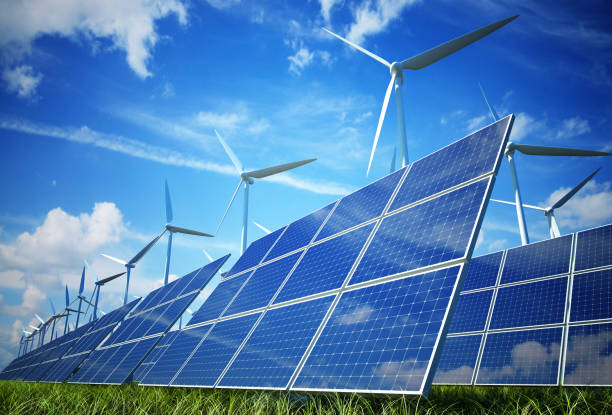
Solar energy is a form of renewable energy, which can be used to generate energy or heat. Sun's energy can be used for different purposes like drying food and cooking food.
Solar power is an alternative to traditional fossil fuels, and it can help reduce energy prices. Additionally, it can contribute to a resilient electric grid, and also create employment.
It's an energy source that is reusable.
Solar energy is utilized in a variety of ways to power a variety of devices, including calculators, household appliances and even computers. It can also be utilized to heat homes and businesses. It's a green and renewable source of energy that can help decrease the emissions of greenhouse gases. Solar energy is a sustainable source of power that can endure for years, unlike fossil fuels which are non-renewable and can run out in a very short period. Whether you desire to find out new information on solar power, you must check it out here at https://www.solarboxlondon.org site.
Solar technology converts sunlight into electricity by using photovoltaic (PV) panels or concentrated solar energy. Photovoltaic technology converts photons (sunlight) into electrons by using semiconductors. Concentrated solar power (CSP) utilizes lenses or mirrors and tracking systems to direct sunlight towards a hot spot. The heat from the sun is utilized to run a generator, which produces electric power.
Solar power is a key component in achieving a future of clean energy. While it does have an environmental footprint that is small when it comes to generating energy and moving the equipment around, it can be offset with the absence of carbon dioxide emissions and other harmful gases generated by non-renewable fuels.
Cost-effective
One of the main reasons for using solar power is to save money in your monthly utility bill. Solar energy systems are highly cost-effective based on the area you reside and your electric cost. The solar energy system can help you reduce the amount of greenhouse gas emissions in your home, which is good for the environment.
Solar energy is mainly produced by photovoltaic panel (PVs) and solar thermal power systems. Solar panels turn sunlight to electric power by absorbing light and electrons, while CSP systems make use of mirrors to concentrate solar heat to a receiver which produces steam to drive turbines.
Solar energy is among the most water-efficient footprints that any other renewable resource that is significant given the global scarcity of water that is fresh. Solar energy doesn't produce air pollution, which could harm land- and water-based ecosystems and cause diseases such as cancer, heart disease as well as asthma. Additionally, solar energy doesn't create any CO2, which is the primary source of pollution.
It is environmentally friendly
Solar energy is a clean and renewable source of power that does not create harmful carbon dioxide or pollutants. In addition to decreasing electricity prices, it reduces the strain on fossil fuels as well as helping keep natural resources from becoming depleted. Also, it does not alter the natural environment, unlike nuclear energy.
Concentrated solar systems and photovoltaics can be used to produce this energy. Photosynthesized cells transform sunlight in electrical energy, while concentrated solar power plants make use of mirrors and lenses to concentrate vast areas of sunshine. Solar energy is also utilized on a smaller scale for boiling hot water as well as cooking purposes, for instance in solar cookers.
In addition solar panels don't require any water for production this is an important advantage over other sources of energy. The lifespan of solar panels is up to 30 years, and are also recyclable. This helps reduce their negative impact on the environment.
You can rely on it
Solar power is safe since it does not produce toxic pollutants. Unlike fossil fuels, which can release harmful substances in the air Solar energy does not emit harmful chemicals that could harm land and water ecosystems. It also does not require large amounts of water to operate, so it can help conserve water the resources.
Solar systems generate electricity by absorbing sunlight and converting it into direct current electricity. Inverters convert it into alternating-current, which is used for equipment and devices.
Solar power can be used for a myriad of purposes for heating homes as well as businesses, and providing back-up energy during the night or in the event of an outage. Also, it helps reduce pollution and offset the cost for a plant that produces electricity through a reduction in greenhouse gas emissions as well as waste. Solar energy is also renewable and therefore it is not depleting natural resources like coal and oil.